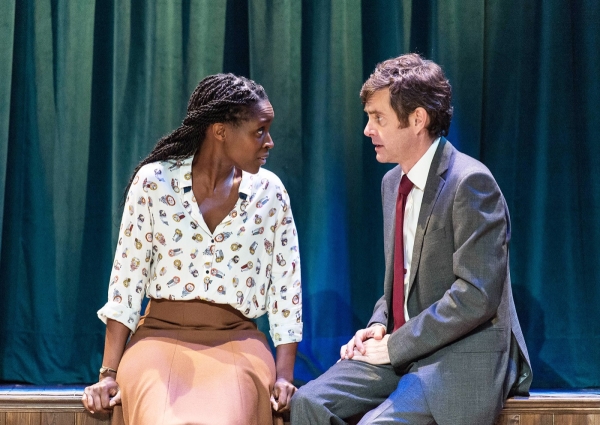Hope (Royal Court)
Jack Thorne and John Tiffany reunite on a new play about a Labour council in crisis

This much is conveyed in a plodding speech about solidarity towards the end of the second act by an old Labour councillor (Tom Georgeson) whose successor, Mark (Paul Higgins), also a councillor, starts the play by rehearsing a speech about having to make £64m savings, £22m this year, cutting amenities and care centres.
His senior colleague, Hilary (Stella Gonet), thinks that museums and libraries should be handed over to trusts and charities, and swishes off to judge a cake bake at the disabled centre. This Hilary is presented as some kind of Thatcherite New Labour dame but turns out to be living in penury with a mother in care and her virtue intact.
"There's not nearly enough good writing to make this theatrically interesting"
We never know where exactly we are supposed to be, which town, and there's no sense of the fabric of civic life being affected. Instead, Thorne makes a personal focus of Mark's relationships with his ex-wife Gina (Christine Entwisle), his mistress Julie (Sharon Duncan-Brewster), who happens to be the old councillor's daughter, and his teenage cocky son (confidently played by young Tommy Knight).
It's as though his political lethargy is a result of his personal shortcomings, but there's not nearly enough good writing to make this theatrically interesting. Tiffany compensates with some risible choreographic inserts, characters leaning at 45 degrees to office furniture and Julie swivelling on a desk on her stomach. Hares are set up with a Muslim councillor Sarwan (Rudi Dharmalingam) and a Down's syndrome charge of Gina, Laura (Jo Eastwood), but they never run.
The thinness and triteness of it all is embarrassing – one campaign even has 'Stephen Fry backing us'; which is neither amusing nor satirical; doesn't he back everything? – until the plodding socialist speeches which only serve to remind you of much better plays by David Edgar and Trevor Griffiths. Tom Scutt has designed a featureless town council setting with a movable truck and large green curtains within which the domestic scenes are played out before the barricades are mounted at the end, sort of; hope, I would have thought, is what ye abandon when ye enter here.
But while there may be a degree of political anger in the play's development, there's no sound of authentic passion beyond the old boy's speech from Tribune, and it's hard to see Sloane Square audiences hoisting the red flag over the Court after enduring so unsatisfactory an antidote to pantomime; they're more likely to rush off and see one.
Hope continues at the Royal Court until 10 January 2015












